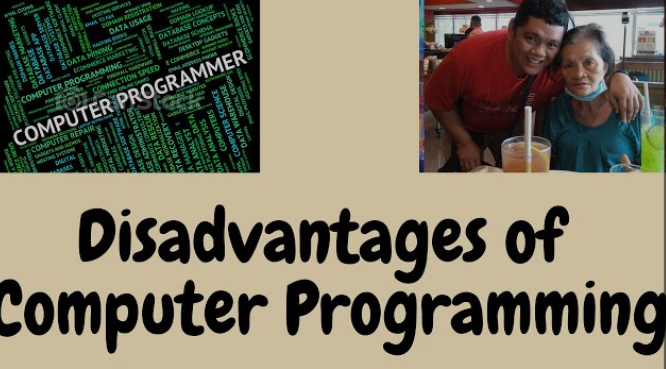In the ever-evolving landscape of technology, computer programming stands as the backbone of innovation. However, advocating for a cessation of computer programming is not without its arguments. While programming has undeniably revolutionized industries and daily life, it’s crucial to explore the potential disadvantages that might arise if we were to halt or limit this field. In this discussion, we will delve into some of the drawbacks that could be associated with stopping computer programming.
- Stifling Innovation and Technological Progress:
One of the most significant drawbacks of discontinuing computer programming is the impact on innovation. Programming is the driving force behind the development of new technologies, software applications, and solutions to complex problems. A cessation of programming would mean putting a halt to the continuous stream of advancements that have become integral to modern life. Without programming, we risk stagnation in various fields, including healthcare, finance, and communication technologies.
- Economic Implications:
The technology industry is a major contributor to global economies. A sudden stop in computer programming could lead to a cascade of economic repercussions. Job markets, particularly those heavily reliant on IT and software development, would suffer. Unemployment rates could surge as the demand for skilled programmers would decrease, impacting the livelihoods of millions of individuals worldwide. Additionally, businesses that depend on software solutions would face challenges in adapting to outdated systems, leading to a potential decline in productivity and competitiveness.
- Cybersecurity Concerns:
The digital era has brought about not only opportunities but also challenges, with cybersecurity being a paramount concern. Computer programming plays a vital role in developing robust security measures to protect against cyber threats. If programming were to be discontinued, the expertise required to counteract and prevent cyber attacks would diminish. This could leave individuals, businesses, and even governments vulnerable to malicious activities, potentially compromising sensitive data and national security.
- Education and Skill Development Setbacks:
Halting computer programming would have a profound impact on education and skill development. As programming languages are integral components of many educational curricula, stopping their use would disrupt the learning process for countless students. Moreover, the development of critical thinking, problem-solving, and analytical skills, often cultivated through programming, would be hindered. These skills are not only valuable in the tech industry but also in various other professional domains.
- Loss of Problem-Solving Tools:
Programming is not just about writing code; it’s a methodology for solving problems efficiently and logically. When we cease programming, we lose a powerful tool for addressing complex issues across diverse domains. The ability to automate tasks, analyze large datasets, and create innovative solutions is compromised. In fields such as scientific research, engineering, and data analysis, the absence of programming could impede progress and limit our capacity to tackle intricate challenges.
- Decreased Access to Technological Solutions:
The discontinuation of computer programming would likely result in decreased access to tailored technological solutions. Custom software applications, designed to meet specific needs, would become obsolete. This could impact sectors such as healthcare, where specialized software aids in diagnosis and treatment, and finance, where intricate algorithms drive investment strategies. Without ongoing programming efforts, the ability to create bespoke solutions for various industries would be severely curtailed.
- Inability to Address Emerging Challenges:
The world is continually facing new challenges, from climate change to global health crises. Computer programming is instrumental in developing technologies that can help address these challenges. By stopping programming, we risk losing the potential solutions that could emerge from this field. Whether it’s optimizing energy consumption, predicting disease outbreaks, or developing sustainable technologies, the absence of programming could leave us ill-equipped to confront emerging global issues.
Conclusion:
While there are certainly disadvantages to consider in the hypothetical scenario of stopping computer programming, it’s important to recognize the critical role this field plays in shaping our present and future. Rather than advocating for its cessation, a more nuanced approach involves addressing ethical concerns, promoting responsible development, and ensuring that the benefits of programming are shared equitably across societies. Balancing the advantages and disadvantages allows us to navigate the challenges associated with computer programming and harness its potential for the betterment of humanity.






